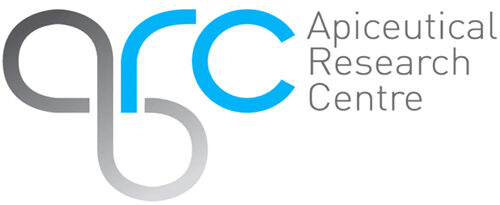Apiceutical Research Centre
- ARC (Apiceutical Research Centre) was founded in 2010 and is based in North Yorkshire UK .
- Its twin aims are to explore the medicinal properties of all bee products as well as to research and develop sustainable beekeeping practices.
- ARC is run by board of internationally acknowledged researchers exploring apicultural, pharmacological, and medicinal aspects of bee products – apiceuticals
- ARC hosted the first conference on Medicines from the Beehive ( Apiceuticals: Medicines of the Future ) in 2011.
- In 2016 it created IPRG – International Propolis Research Group and in 2022 helped found GBMG – Global Bee Medicine Group
Why a Global Propolis Survey
- Multi Drug Resistance
Modern Medicine is in crisis. In 2019 4.9 million people died globally from anti biotic resistance . Multi Drug Resistance is one of WHO’s Top Ten Global Health Problems. - Masking a deeper problem
Antibiotic resistance masks a much deeper and more fundamental concern for human health – the progressive erosion of our natural immune system which enables the human body to adapt develop and evolve. - The honeybee’s immune system
Propolis is the honeybee’s threefold immune defence system – physically strengthening and defending the hive, socially maintaining the colony’s communal hygiene and at a cellular level balancing the challenge of microbes. - No single active component
In over 100 years of modern research no single ‘active ingredient’ has been discovered in propolis. The secret of propolis lies in the interrelatedness of the whole. Everywhere the bees collect a bouquet of local resins (the plants immune defence ) which provides them with the raw material for their own unique, ecologically, and sustainably balanced immune defence system. - Propolis – From Anti To Pro
In confirming the anti-properties of propolis (antibiotic, anti-inflammatory, antifungal) we have discovered that propolis does not work by targeted destruction but by disarming, disabling, and discriminating i.e., balancing, and adapting. - Propolis – an ecological response
Propolis from temperate zones has stronger antioxidant properties , propolis from sub-tropical areas is more anti-microbial pointing towards a geographical or ecological medicine from the honeybee. - A bridge to the human ecology
Human beings are also part of their local context, regional ecology, climatic zone. The environmental challenge that bees face is close to that faced by human beings. But we need to know much more about the relationship between local ecology, chemistry and biology and clinical efficacy in humans of propolis from different climatic zones and regions. Hence the need for a Global Propolis Survey – GPS
Global Propolis Survey
- Collect samples from every region and country in the world where the honeybee collects propolis
- Collect accurate GPS data of all samples submitted
- Collect details of how propolis has been collected
- Collect comprehensive data relating to local ecology (geography, climate, and flora) in sample collection areas.
- Collect evidence of local use of propolis in sample collection areas
- Liaise with WHO and local/regional governmental and health authorities to collect local health demographics in sample collection areas
- Design a range of appropriate chemical and biological tests for all samples submitted
- Establish a consortium of appropriately equipped IPRG related laboratories situated around the world where propolis samples can be analysed chemically and biologically.
- Create world map of propolis which relates chemistry of propolis to biological properties of propolis.
- Correlate chemical and biological data of specific samples with local health demographics.
- Produce and publish a WORLD PROPOLIS MAP
- ARC will seek funding for the project from international research funds.
Can You Help?
Thank You
James Fearnley
James.fearnley@beearc.com
